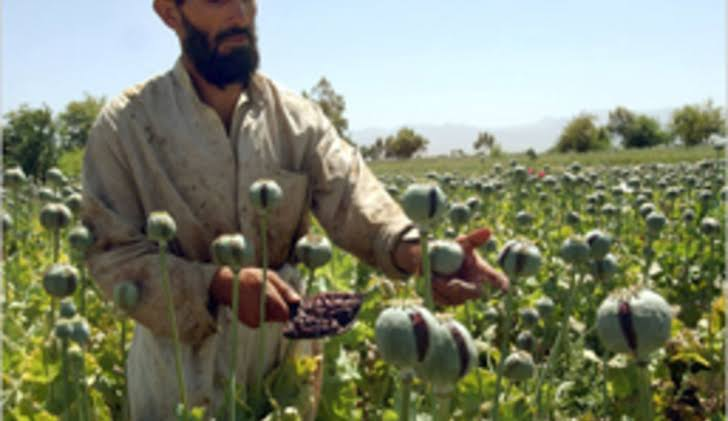Profits and poppy: Afghanistan’s illegal drug trade a boon for Taliban
The United States spent more than $8 billion over 15 years on efforts to deprive the Taliban of their profits from Afghanistan’s opium and heroin trade, from poppy eradication to airstrikes and raids on suspected labs.

By Reuters
The United States spent more than $8 billion over 15 years on efforts to deprive the Taliban of their profits from Afghanistan’s opium and heroin trade, from poppy eradication to airstrikes and raids on suspected labs.
That strategy failed.
As the United States wraps up its longest war, Afghanistan remains the world’s biggest illicit opiate supplier and looks certain to remain so as the Taliban is on the brink of taking power in Kabul, said current and former U.S. and U.N. officials and experts.
The latest from Afghanistan
Widespread destruction during the war, millions uprooted from their homes, foreign aid cuts, and losses of local spending by departed U.S.-led foreign troops are fueling an economic and humanitarian crisis that is likely to leave many destitute Afghans dependent on the narcotics trade for survival.
That dependence threatens to bring more instability as the Taliban, other armed groups, ethnic warlords, and corrupt public officials vie for drug profits and power.
Some U.N. and U.S. officials worry Afghanistan’s slide into chaos is creating conditions for even higher illicit opiate production, a potential boon to the Taliban.
“The Taliban have counted on the Afghan opium trade as one of their main sources of income,” Cesar Gudes, the head of the Kabul office of the U.N. Office of Drugs and Crime (UNODC), told Reuters. “More production brings drugs with a cheaper and more attractive price, and therefore a wider accessibility.”
With the insurgents entering Kabul on Sunday, “these are the best moments in which these illicit groups tend to position themselves” to expand their business, Gudes said.
The Taliban banned poppy growing in 2000 as they sought international legitimacy, but faced a popular backlash and later mostly changed their stance, according to experts.
Despite the threats posed by Afghanistan’s illicit drug business, experts noted, the United States and other nations rarely mention in public the need to address the trade – estimated by the UNODC at more than 80% of global opium and heroin supplies.
“We’ve stood by on the sidelines and, unfortunately, allowed the Taliban to become probably the largest funded non-designated terrorist organization on the globe,” said a U.S. official with knowledge of Afghanistan’s drug trade.
“The U.S. and international partners have continued to pull out and not addressed poppy cultivation,” the official said on condition of anonymity. “What you’re going to find is that it has exploded.”
Asked for comment, a State Department official said the United States would continue to support the Afghan people, “including our ongoing counternarcotics efforts,” but declined to say how aid would continue should U.S. assistance stop if the Taliban seize power.